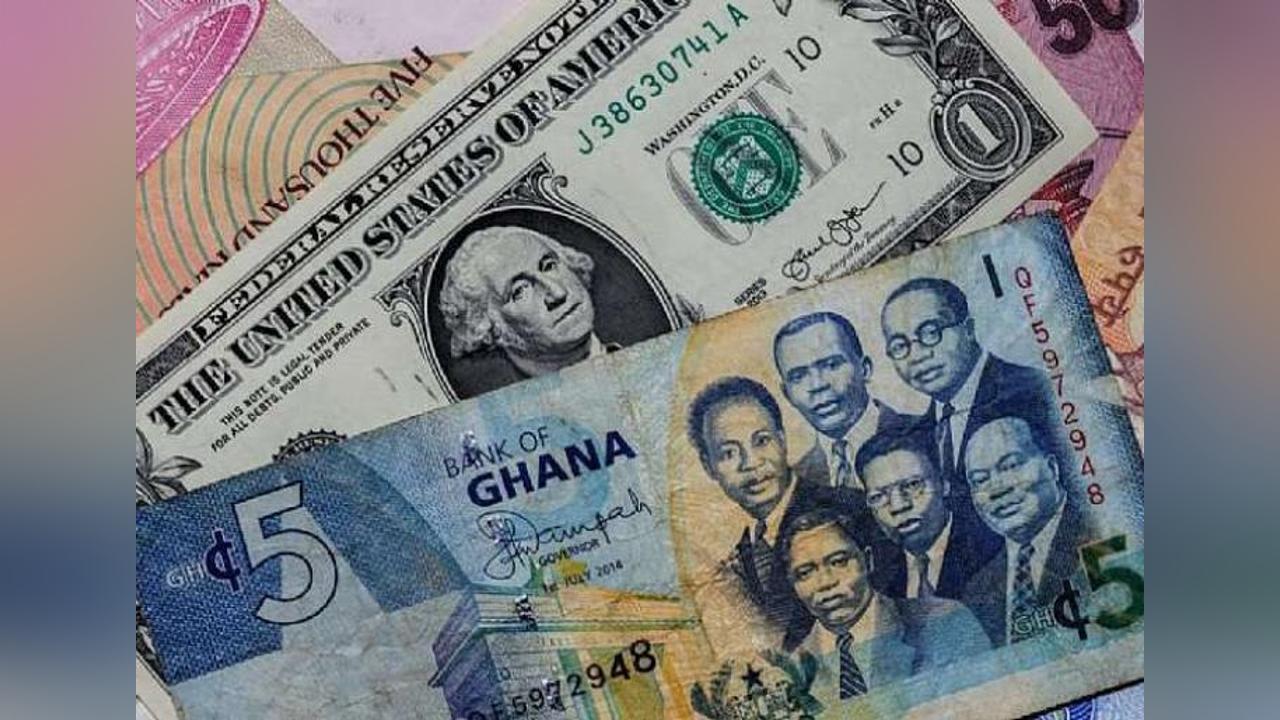Africa-Press – Ghana. Ghana’s currency, the cedi, has been on a notable appreciation streak against the United States dollar, sparking debate about its implications for price reductions and economic relief.
From GH¢15.5050 per dollar on April 16, 2025, the cedi strengthened to GH¢12.8900 by May 12—a gain of 16.86 per cent and a remarkable Year to Date (YTD) gain of 12.31 per cent.
The cedi’s rapid appreciation in the first half of this year stands in stark contrast to its 2024 performance, where it depreciated by 19.2 per cent against the dollar in the interbank market, according to the Bank of Ghana Monetary Policy Report for January 2025,
The rate of inflation, another important macroeconomic metric closely interconnected with the currency exchange rate, continues to fall—from 23.5 per cent in January 2025 to 21.2 percent in April.
The currency’s appreciation streak comes after the National Democratic Congress (NDC) assumption of political power and management of the economy, following the party’s win in the December 2024 general election. The foreign exchange rate—the performance of the cedi against major trading currencies and the impact on cost of living—was a major campaign issue.
As expected, President John Dramani Mahama noted the cedi’s growing strength—albeit cautiously—during a nationally broadcast address on May 7, 2025, to give account of the Social Contract for his first 120 days in office, which he professed during the election campaign.
“The currency is becoming fairly stable, inflation is inching downward…” he read tersely.
According to standard macroeconomic theory, a sustained currency appreciation should reduce the cost of imports, ease imported inflation and enhance consumer purchasing power.
It should also lower external debt servicing costs, boost investor confidence, and, conversely, reduce the cedi value of remittances and export earnings.
On paper, this is good news. A stronger cedi results in lower import prices and helps slow inflation, which could, in theory, compensate for the income loss caused by weaker remittance and export earnings. However, in practice, the mitigating effect of lower inflation is limited and often delayed. This has been the case with the cedi’s recent appreciation.
Despite the cedi’s gains, consumer prices remain high, and the benefits of currency strength appear slow to filter through. Indeed, the lived reality for many Ghanaians tells the story of disconnect between currency gains and real-world relief and, in many instances, drawing their consternation.
The disparity arises from several factors, as noted in mainstream economic literature on currency appreciation and depreciation and their impacts or benefits for citizens.
Inflation benefits are broad, but income losses are immediate
According to the macroeconomic playbook, while falling inflation benefits the broader economy—everyone pays a bit less for fuel, food, pharmaceuticals and other essentials—the pain from income losses due to remittance and export devaluation is felt directly by specific households and businesses.
For instance, an exporter of agricultural produce or remittance-reliant family can lose about 10–11 per cent of their income virtually overnight, whereas the overall cost of living might only dip by 2–4 per cent over the same period.
Exchange rate gains don’t immediately lower prices
The pass-through from exchange rate gains to consumer prices is neither complete nor immediate. Importers often delay price reductions due to pre-existing contracts, high inventory costs, or pricing rigidity. Local producers may keep prices high to recover from earlier inflationary shocks or to protect profit margins. As a result, consumers may not see immediate or proportional price relief—even as the cedi gains strength.
Inflation eases costs, not incomes
A decline in inflation slows the pace of rising costs but does not boost incomes. A household receiving fewer cedis per dollar of remittance now has less to spend; they experience immediate reduction in the amount they receive in cedis—even if food prices fall slightly.
Exporters earning fewer cedis for their goods may delay investment, cut costs, or reduce wages long before they enjoy any benefit from cheaper imports.
Sectorial disparities persist
Many essential services—such as rent, school fees, and transportation—are classified as non-tradables and are largely insulated from currency movements. These prices tend to be sticky and slow to adjust, further compounding the impact of falling incomes from foreign-exchange-sensitive sectors like agriculture and remittances.
Structural constraints in Ghana’s economy
Ghana’s economy is heavily import-dependent, but key income flows—exports and remittances—are critical lifelines, not just balance sheet items. While a stronger cedi may ease inflation at the macro level, it does little to replace the cash that households rely on for food, education, and housing.
In short, the timing, distribution, and magnitude of the benefits from cedi appreciation do not match the immediacy and concentration of the losses. For many Ghanaians, the theory may hold—but the lived experience does not.
Government response and market outlook
Despite these concerns, Dr. Cassiel Ato Forson, the Minister of Finance assured stakeholders—during a recent meeting with the leadership of the Food and Beverage Association of Ghana (FABAG)—that the cedi’s appreciation was not a “temporary phenomenon but the result of deliberate, strategic economic management.”
Indeed, the currency’s strength appears to have boosted investor sentiment. On May 9, global credit rating agency S&P Global Ratings upgraded Ghana’s foreign-currency sovereign credit rating from Selective Default (SD) to CCC+, citing improved economic prospects and renewed confidence.
“The upgrade by S&P is a strong signal to the international investor community and development partners that Ghana is turning a crucial corner,” the Ministry of Finance noted in a Facebook post.
Again, the Ministry is bullish on the economy as it disclosed that S&P also projected Ghana’s public debt, net of liquid assets, would decline from 71.4 per cent of GDP at the end of 2024 to 47.4 per cent by 2028.
Is the cedi’s appreciation sustainable?
In spite of the notable performance, questions remain about the sustainability of the cedi’s recent gains. Some analysts suggest the rally has been driven by a combination of central bank interventions, disbursements from the IMF, and initiatives like the new Ghana Gold Board. Others attribute it to a weakening of the US currency, following their new tariff issues with China and Europe. Whether the gains are durable—or merely short-term props—remains to be seen.
While a stronger cedi may signal economic improvement, its true impact depends on how long and deeper the appreciation lasts, the extent to which it is supported by sound market fundamentals rather than artificial interventions, and how quickly and fairly the benefits are passed on to ordinary Ghanaians, who, in the meantime, await what difference it will make.
Source: Ghana News Agency
For More News And Analysis About Ghana Follow Africa-Press







